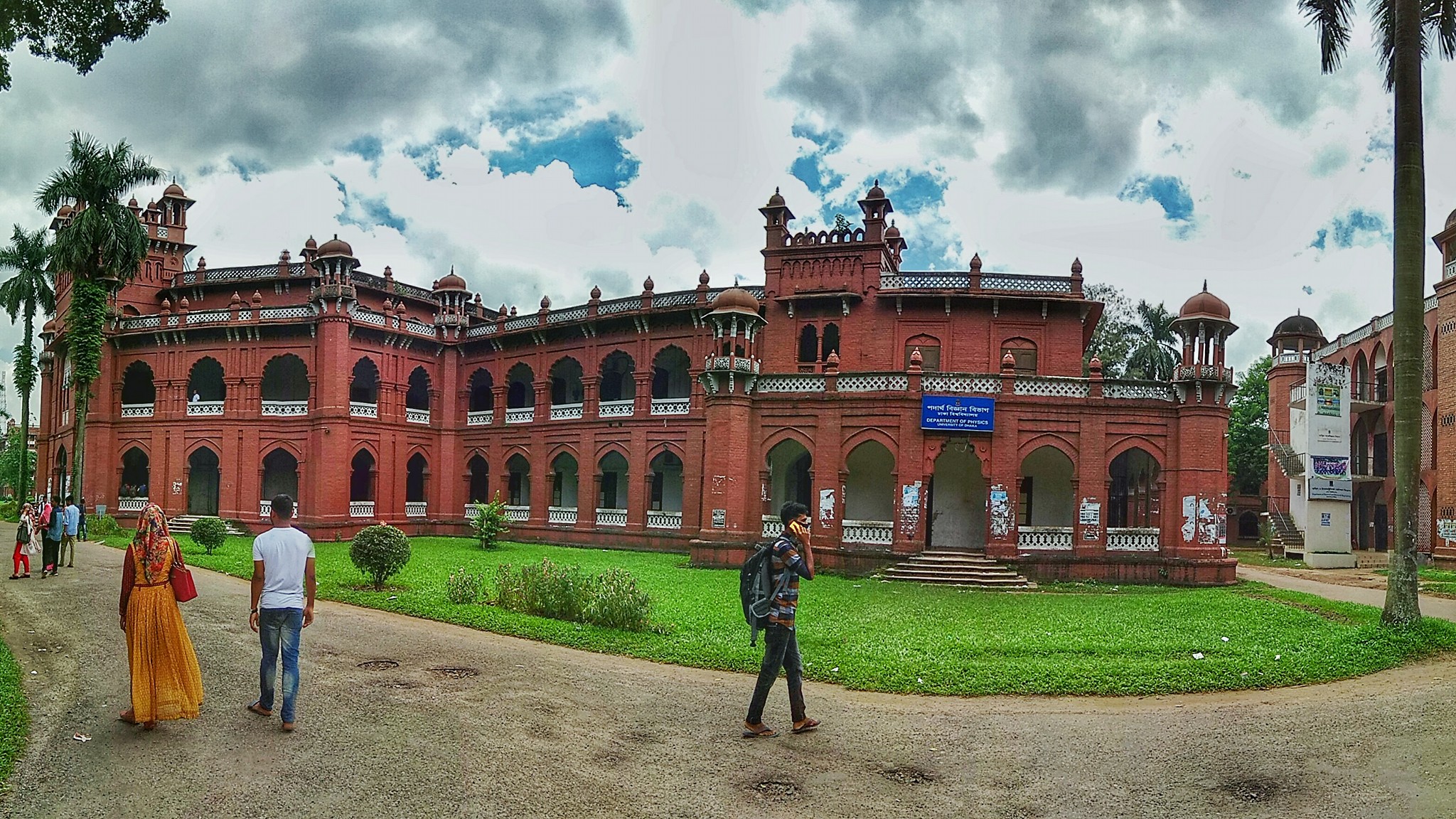What is the role of the university in society and politics? I have always thought, written, reviewed and researched about this. I have been thinking about it for the last few days due to the changed daily routine in Corona. The occasion of the emergence of such an idea was the centenary of Dhaka University.
On the first day of this month, the country’s first higher education institution has reached the threshold of a century of establishment. Celebrating such a milestone was not possible due to the Corona situation. But as it turns out, discussions on the significance of the university’s centenary and future work through the media and social media did not stop there.
The new technologies and trends that have been created, especially in online discussions, have added new dimensions. On the occasion of the day, I myself released a video message greeting all concerned.As a former student of this university and a multiple member of the Senate, including the current term, I expressed the hope that this university will be more rich in knowledge and knowledge in the future.
Its students will study properly in the coming days. They will become ethical. They will be strong in human and social qualities, will become skilled. This will contribute to building the spirit of the liberation war.
The main goal of any university is to provide higher education, no doubt. But the full significance of Dhaka University as a higher education institution is not clear. According to the law passed by the then Indian Legislative Assembly in 1920, Dhaka University started its journey as a residential university on 1 July 1921. The matter was not easy in the socio-economic and political context of the time.
The decision to set up a university in Dhaka was taken in 1912 as ‘compensation’ for the abrogation of the Partition of Bengal in 1911, but it took almost a decade more to establish. It is the duty of each and every one of us to express our gratitude to the interested, enthusiastic and far-sighted scholars who have led, built the time and effort to build this university and have overcome the opposition of some quarters.
We have seen that in the post-establishment period, this university has played a far-reaching role in the socio-economic and political transformation of the then East Bengal or today’s Bangladesh. The University of Dhaka became popularly known as the Oxford of the East due to its academic and housing structure similar to that of the University of Oxford in England. In fact, this university emerged as the birthplace of the awakening of East Bengal and the center of the realization of the independent being of the people of Bengal.
Therefore, the leading role of this university in the anti-British movement, language movement, education movement, mass uprising of the seventies, great liberation war, anti-dictatorship movement has become luminous. It is a source of pride for all those who have studied and are studying in this university or who have not been a student in this higher education institution but have been or are associated with it by performing administrative and other responsibilities.
Sir Philip Joseph Hartog, the first Vice Chancellor of Dhaka University, was tasked with building the university on a solid foundation and increasing the number of subjects and teachers. At the beginning of that limited range, the number of teachers and students in the university is about 34 times and the number of students is about 53 times. In other words, the university is now huge. Meanwhile, many textbooks have been included and the number of sections has increased accordingly. In addition, there are a significant number of affiliated institutions and residential halls.
The present Vice-Chancellor, Prof. Mohammad Akhtaruzzaman and his associates are not only responsible for the smooth running of the administrative and educational-training-examination activities of the huge university in the conventional manner. For the reason that this university was called the Oxford of the East, it must try to restore its past glory by overcoming the shortcomings that have arisen in it. He needs high quality education and research and creation of new and significant new knowledge. Unfortunately for a long time the weakness in both cases has been increasing but not decreasing.
Like other educational institutions in the country, Dhaka University has many questions about the quality of education. This issue is not only at the university level, it extends to the entire education sector. It can be said that the problem starts from the primary education stage. The question is, how much quality education do the students who come to study at the university get in the previous stages. In fact, the quality of education from the earliest stages is still in question.
At that stage, a large number of children who have a weak foundation of education can no longer do well in later stages. In addition, the traditional method of teaching at Dhaka University (although many also use PowerPoint) is not very helpful in overcoming those shortcomings. But overall, there are questions about the quality of education at the university.
Admittedly, the whole education system has relied on exams. That is to say, ‘whatever you say, brother, I want to get GPO five in my exam’ – this idea is ingrained in the minds of the students from the initial stage. Otherwise it’s all over. Parents, teachers, educational institutions all do this work. As a result, some children choose to commit suicide because the test results are not as expected.
In order to get good results in exams, students choose from the primary level, read notebooks, read whatever the private teacher lets them read, basically memorize all these. There is no time to understand, think and ask questions. That is, the basics of quality education are eliminated. All in all, there is no harm in learning and understanding, you have to memorize and do well in the exam.
This trend continues from the beginning to the next stage. From the earliest stages, it is important to streamline the education system with special emphasis on notebooks, private reading and memorization, thinking, and raising questions. If the trend continues till university, there will be significant improvement in education at all levels. This is clear from the experience of other countries in the developed world, including Finland.
Dhaka University and other universities in the country also have limited facilities and equipment for research or knowledge creation. Funding for research is also limited. Therefore, the creation of a basic work and knowledge of the university is being largely neglected. Unless there is proper development in the future, any university in the country can be considered as a teaching higher education institution rather than a real university.
Therefore, I am drawing the attention of all concerned to take necessary steps for the development of research at the appropriate level with the aim of re-establishing the heritage of all the universities of the country including Dhaka University. In particular, the current Vice-Chancellor of all universities, including Dhaka University, and the current Minister of Education have the most responsibility in this regard.
Before concluding, I would like to talk about politics at the university. There is no external enemy in independent-sovereign Bangladesh who has to be chased away. Now it is the job of all of us to build the country in the spirit of liberation war. So I don’t see any problem as the teachers and students of the university are involved in party based national politics.
The problem is when their party politics disrupts the real work of the university, namely education-training-research; It has a negative impact on various activities of the university including teacher recruitment. Party politics will be in the political arena. The politics of the university will revolve around how the various activities related to education, training and research can be improved, made more standardized, made world class and the overall environment of the university can be made more improved.
Translated by Google
Originally Written by: Kazi Khaliquzzaman Ahmad
Economist, Member of the Senate, University of Dhaka


